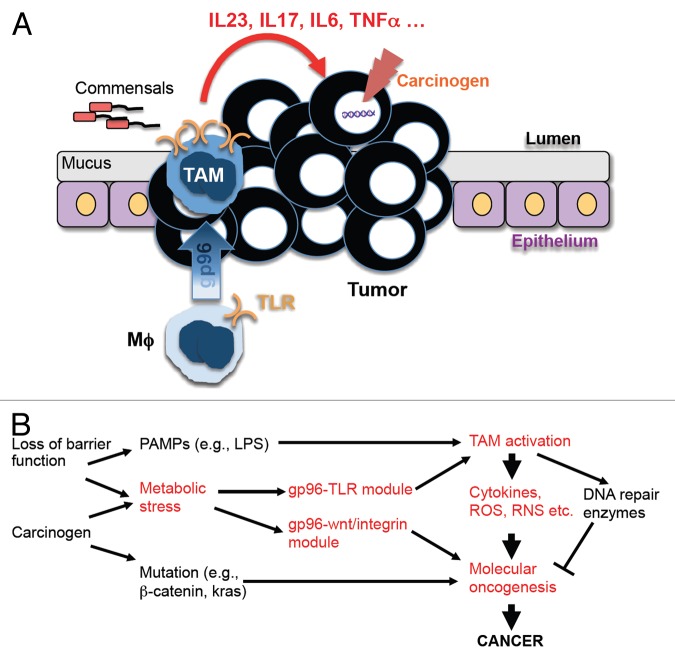Figure 1. A pivital role of GP96 in driving inflammation and inflammation-associated colonic carcinogenesis. (A and B) The loss of barrier functions leads to bacterial translocation across the intestinal wall, which activates macrophages through Toll-like receptor (TLR) ligands such as lipopolysaccharide (LPS). Chronic inflammation coupled with carcinogens triggers the upregulation of glycoprotein 96 (GP96) and the functional conversion of macrophages (Mϕs) into tumor-associated macrophages (TAMs), which fuel oncogenesis by producing cytokines, reactive oxygen species (ROS), reactive nitrogen species (RNS), etc. The metabolic stress conditions that characterize the tumor microenvironment also stimulate the increased expression of GP96 in (pre)neoplastic cells, promoting malignant transformation through multiple signaling modules including the WNT and integrin pathways.

An official website of the United States government
Here's how you know
Official websites use .gov
A
.gov website belongs to an official
government organization in the United States.
Secure .gov websites use HTTPS
A lock (
) or https:// means you've safely
connected to the .gov website. Share sensitive
information only on official, secure websites.
